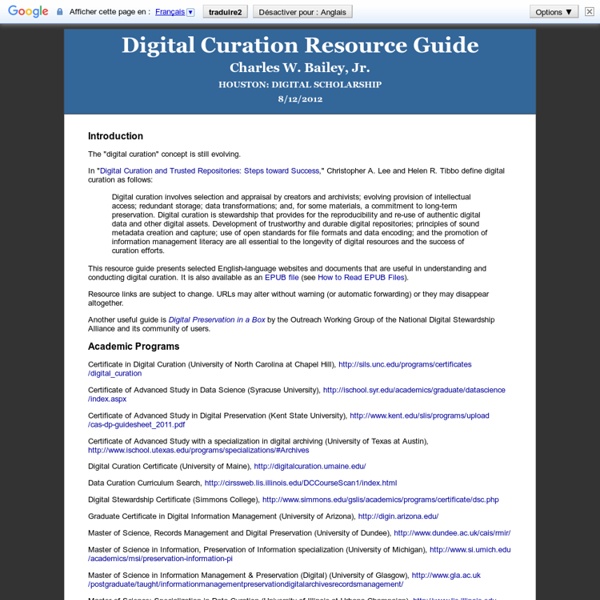Digital Curation Resource Guide
Second Life Education/Resources
From Second Life Wiki Second Life Wiki > Second Life Education > Second Life Education/Resources The Education Community is Among the Most Vibrant and Active in Second Life The education community is the fastest growing and among the most vibrant, active, and dynamic in Second Life. The email lists and groups are free to join and are places where you can listen to the conversations or join in. When you ask a question to the group, you are drawing on a deep well of experience and good will, where people generously share best practices, common mistakes, quick tips, and make connections. Second Life Education Forum General Learning Resources Language Learning Cypris Chat Places to Learn Second Life Skills SL Education Blogs Videos Showcasing Educators in SL Learning Tools Interesting Virtual Campuses (Direct SLurls) Museums Science and Health Resources
Related:
Related:



